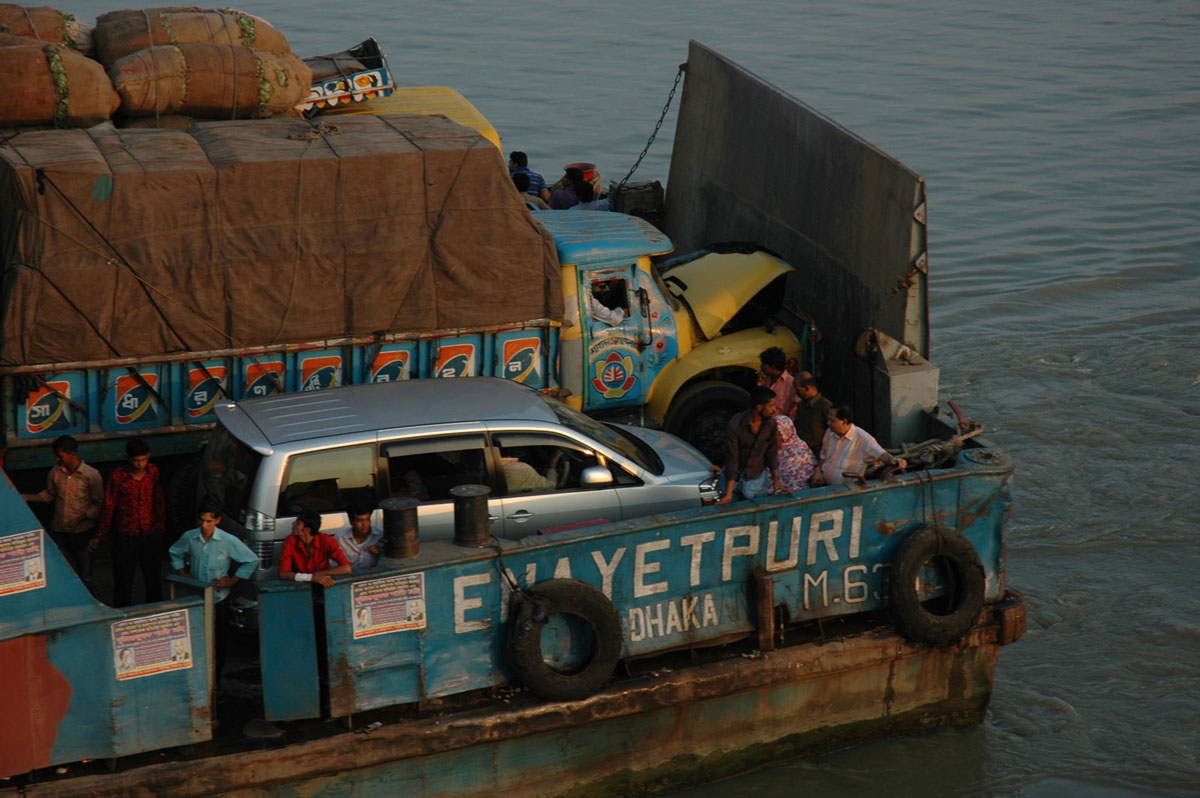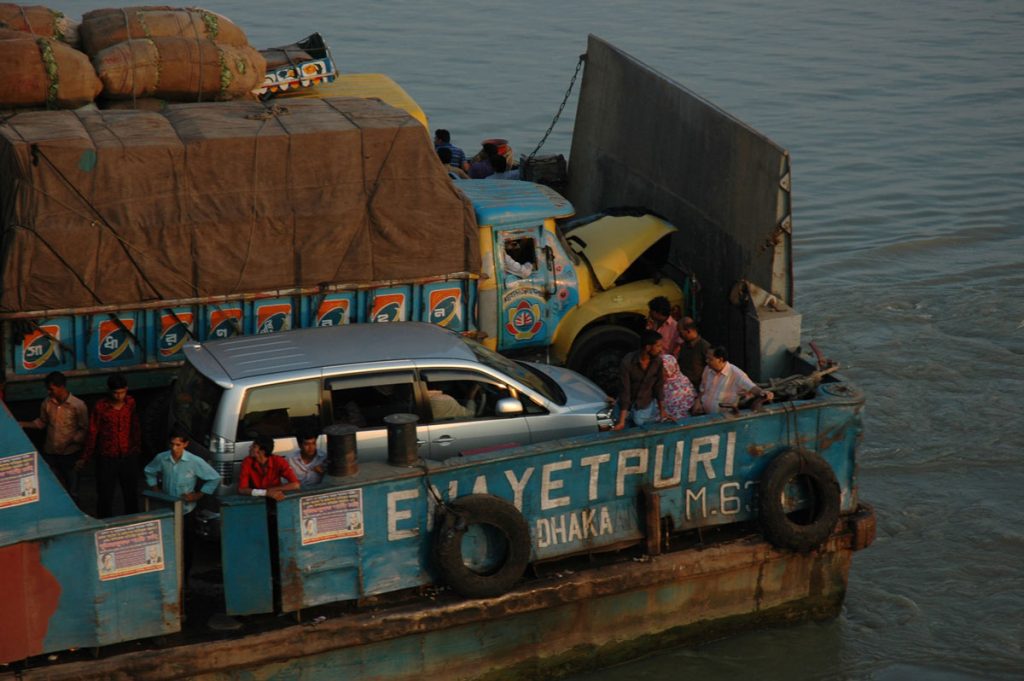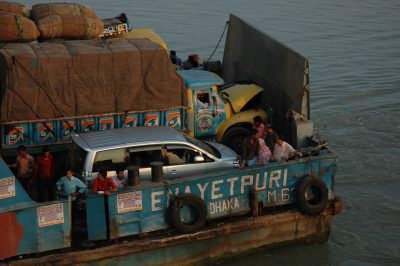Main implementing partners
Bauhaus-Universität Weimar (BUW)
Within the framework of the consortium, the Bauhaus-Universität Weimar (BUW) is responsible for the overall coordination of the project. As the sole recipient of funds, it is responsible for forwarding funds as agreed upon in the respective sub-grant agreements to project partners in Bangladesh and Germany. Furthermore, the BUW determines the accounting modalities and rotation, and the responsibilities in the work packages. In addition to the administrative handling, BUW is integrated in all content related matters, including all conceptual considerations, the evaluation of the collected data and the life cycle considerations. The project relevant unit at the BUW is the Chair for Biotechnology and Resource Management at the Bauhaus Institute for infrastructure systems, Faculty of Civil Engineering.
Partner lead: Prof. Dr.-Ing. Eckhard Kraft
Website: https://www.uni-weimar.de/en/university/start/
Institute for Social-Ecological Research (ISOE)
The Institute for Social-Ecological Research is one of the leading independent institutes for sustainability research in Germany. In the SCIP Plastics project, the ISOE accompanies all project activities. In particular, it supports all participatory processes in the working groups, for example in the integration of the informal sector, in terms of technical content and are to be understood as interactive, adapted processes. ISOE is largely responsible for the content of the Awareness Centre in the inner city area of Khulna, which is being set up and operated by the KCC and plays a leading role in the area of awareness raising, as results and innovations, are to be widely disseminated here.
Capabilities and experiences: Transdisciplinary integration, social-ecological assessment and evaluation of water infrastructure and risk analysis.
Function / role: Grant recipient; Conducting stakeholder analysis, workshops, awareness rising, knowledge transfer, acceptance studies and social-ecological impact analysis.
Partner lead: Dr.-Ing. Martin Zimmermann
Website: https://www.isoe.de/en/
Khulna University of Engineering & Technology (KUET)
KUET has been a long-standing research partner of the BUW. Within KUET, the Department of Civil Engineering with Prof. Rafizul Islam, Professor for Geotechnical & Geo-Environmental Engineering will lead the project activities. In particular, the KUET team heads the Working Groups I – Waste Collection /Secondary Disposal Points, II – Recycling Shops and III – Landfill Management. In addition, KUET will also establish a Waste Lab (waste laboratory) with state-of-the-art analysis for waste and resoruce characterization.
Capabilities and experiences: App. 20 years of experience in waste management, host of the international WasteSafe conference, high presence in the waste sector, implementation of various international research and development projects in the region.
Function / role: Grant recipient; Management and coordination of the hub and working groups, conducting of the status analyses, development of concepts and master plans, networking in politics, economy and society, starting additional research activities.
Partner lead: Prof. Dr. Md. Rafizul Islam
Website: https://www.kuet.ac.bd/
Chittagong University of Engineering & Technology (CUET)
At the Chittagong University of Engineering & Technology (CUET), the Department of Civil Engineering with Prof. Farzana Rahman Zuthi will implement project activities. CUET leads the Working Groups IV – Waste Management at Ports and V – Plastic substitution with Jute Products.
Capabilities and experiences: 16 years of experience on water discharge pathways and sanitation, risk analysis on flooding, sustainability assessment and material flow balancing.
Function / role: Grant recipient; Accounting of the ports in Mongla and Chattogram, sustainability assessment of jute, derivation of substitution potentials.
Partner lead: Prof. Dr. Mst. Farzana Rahman Zuthi
Website: https://www.cuet.ac.bd/
Khulna City Corporation (KCC)
Khulna City Corporation (KCC) is a self-governing organization responsible for the management of the 31 wards within Khulna municipality. It operates under the supervision of the Ministry of Local Government & Rural Development (LGRD). Within the SCIP Plastics project, the KCC is involved especially in the practical implementation of selected measures to reduce marine litter. The participation of KCC fosters a transdisciplinary approach and ensures that the research activities have high practical relevance. Furthermore, KCC in cooperation with KUET and the ISOE will establish an Awareness Centre in Khulna.
Capabilities and experiences: Responsible for solid waste management, namely the organisation of collection, treatment and disposal of all municipal wastes since 1984.
Function / role: Grant recipient; Permanent member of the hub. Responsibility in the working groups for the implementation, realization and continuation of operation in pilot projects.
Partner lead: Abir ul Jabbar
Website: http://www.khulnacity.org/
Other implementing partners
Bangladesh Jute Association (BJA)
As part of the research activities in Working Group V – Plastic substitution with Jute Products, a detailed life cycle analysis of jute products will be conducted in collaboration with the Bangladesh Jute Association (BJA).
Capabilities and experiences: Industry representative for the cultivation, utilization, production and marketing of jute products domestically and internationally.
Function / role: Provision of institutional backing and data access to the proposed project consortium.
Website: http://bja.com.bd/
Political partners
Ministry of Environment, Forests and Climate Change (MoEFCC) Bangladesh
The Department of Environment (DoE), Khulna is part of the national Ministry of Environment, Forest and Climate Change (MoEFCC), Government of the People’s Republic of Bangladesh. The support of the ministry allows project goals to be integrated into national climate protection and marine plastic avoidance strategies. To ensure successful and well-founded environmental legislation, MoEFCC is supported by the hub’s scientific advisory service.
Capabilities and experiences: Thematic and administrative related ministry in Bangladesh.
Function / role: Political backing for project implementation at national level. Legal decision maker and highest authority for legal policies and responsibilities.
Website: http://www.moef.gov.bd/
University Grants Commission (UGC)
The University Grants Commissions (UGC) guides the scientific outreach of all 151 public and private universities in Bangladesh in accordance with national research objectives and priorities. As part of the Ministry of Education, the UGC performs science advisory functions at the government level.
Capabilities and experiences: Administrative support and coordination of research priorities and strategies at national level.
Function / role: Ensuring a smooth working environment between the partners involved as well as between national and international research and development strategies. Transfer of science-based policy advice on national level.
Website: http://www.ugc.gov.bd/
Mayor’s office Khulna, Municipality (KCC)
On a local level, the Mayor of the city of Khulna, Mr. Talukder Abdul Khaleque, is involved as a political partner. Therefore, the office of the Mayor will not contribute any financial subsidy nor will receive any grant payments but will provide institutional backing and data as well as facility access to the project team. The partner will help distributing the results to other cities with similar challenges and structure.
Capabilities and experiences: Political responsibility of the municipal waste management and the municipal company Khulna City Corporation (KCC).
Function / role: Overcoming unclear administrative responsibilities in municipal services. Provision of institutional backing and access to necessary data and facilities for the proposed research project consortium.
Website: http://www.khulnacity.org/
Mongla Port Municipality
For activities planned within Working Group IV – Plastic pollution from ports, Mongla Port Municipality will be an important partner and stakeholder. The port municipality will be strongly involved in the development of appropriate measures.
Capabilities and experiences: Political responsibility for municipal waste management in Mongla city and the port area.
Function / role: Provision of institutional backing and access to necessary data and facilities for the proposed research project consortium.
Website: http://www.monglaportmunicipality.gov.bd/
Ward no. 24, Community based organisation (CBO)
The local community-based organization (CBO) namely “Nirala Janokallan Samity” at Ward no. 24 of KCC will play a significant role in the practical implementation of measures to reduce plastic pollution, and will also further the overall transdisciplinary approach of the project.
Capabilities and experiences: Position of local district head and subordinate organizational unit for municipal matters and affairs.
Function / role: Access to stakeholder participation and support for the implementation of neighbourhood pilot scale operations.



